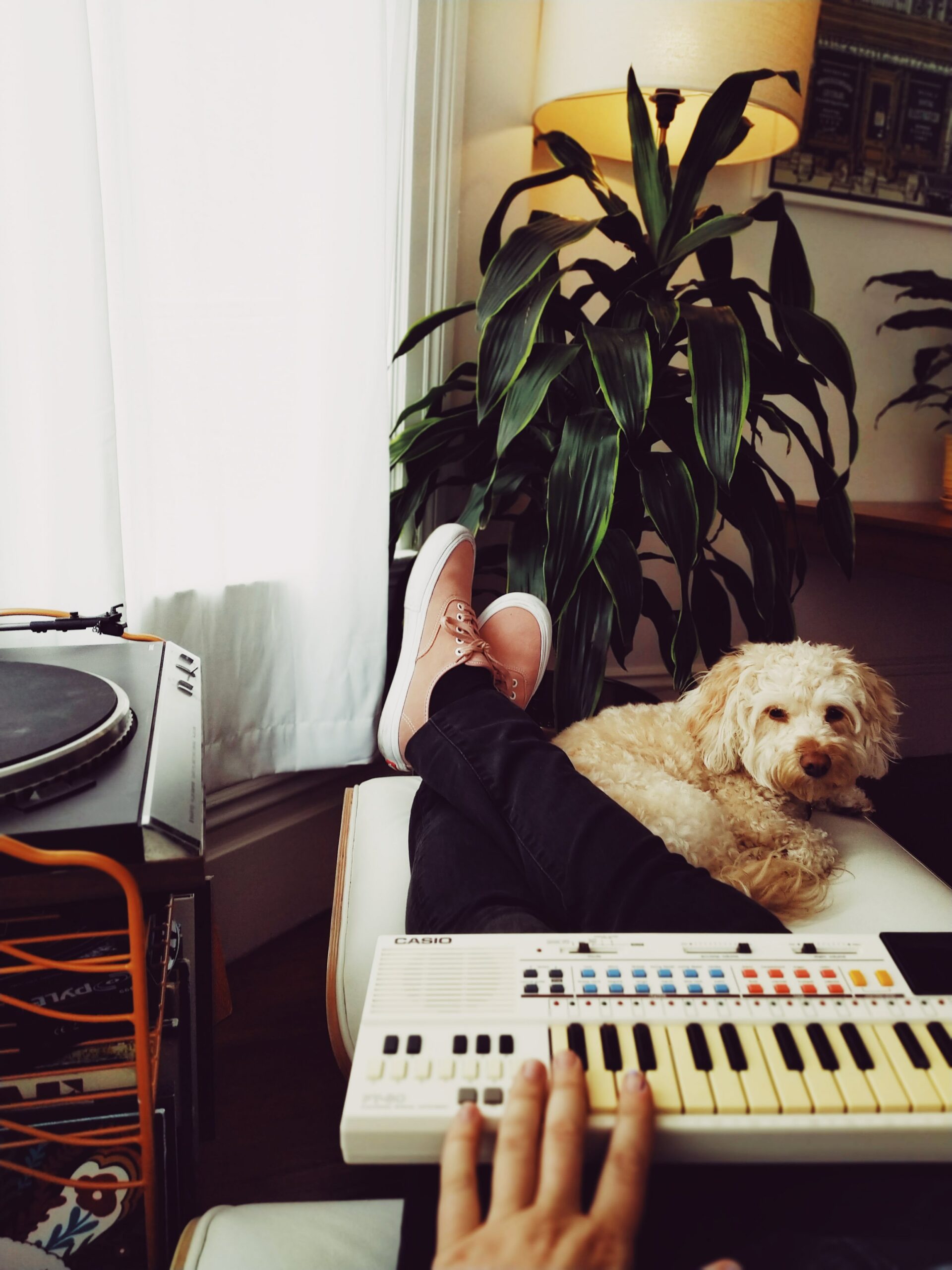Have you ever noticed a reaction from your dog when you were listening to music? Did you think that he was getting enjoyment out of it, or did you assume that you were projecting your reaction to the music onto him? It turns out that dogs react to music similar to the way that people do and even show preferences for different types of music. Knowing how the effects that different types of music may have on your dog can help you use it to influence his behavior.
How Do Dogs React To Music?
You have probably noticed that different types of music affect you in different ways. The same is true for dogs. Some types make them feel calm and relaxed, while other types can make them feel agitated.
Some dogs react to music by barking or howling. If your dog howls when you turn on your favorite radio station, such as 88.3 FM, it doesn’t necessarily mean that she doesn’t like it. More likely, she is trying to sing along in her own way. Dogs have an instinct to join in when they hear others howling. This instinct may be triggered when they listen to music, especially if it includes a lot of wind instruments.
What Kind of Music Do Dogs Like?
Individual dogs have different tastes in music based on their personalities, just as people do. Your dog’s reaction provides clues as to what kinds of music he does and doesn’t like. If the music causes him to become agitated, he probably doesn’t like it, whereas if he becomes calm when listening to it, he probably does. Note that these are general guidelines rather than hard and fast rules. For example, you may interpret your dog’s howling along to music as agitation, but it isn’t necessarily an expression of dislike. However, dogs usually become agitated in other ways as a sign of stress, so it is probably not a reaction you want to provoke by playing music.
In a study, dogs exposed to pop music by artists such as Britney Spears showed very little reaction, neither becoming more agitated nor more calm. Dogs tend to react to loud or chaotic genres of music, like heavy metal or grunge, with agitation. Reggae, soft rock, and classical music, especially harp music, tend to promote more relaxed reactions.
Interestingly, dogs can become accustomed to music the more they listen to it. After they have been listening for a while, the types of music most likely to calm them are those they are most familiar with through frequent exposure.
You can always do a taste test and see what your dog seems to like- do their ears perk up and then does your dog slink away, or do they seem more energized or zen? Let their preference help you set the tone for the mood you are trying to create. Leaving the pup alone for an evening out- a zen choice may be more suitable. Time to playtime – put on the upbeat songs!
How Do Dogs Experience Music?
Dogs can listen to music along with people. Your pet may even like some of the same genres you do. However, she does not experience the music the same way you do. Dogs are able to perceive much higher frequencies than humans can. Therefore, your dog may be perceiving overtones in the music that you cannot. On the other hand, humans are able to perceive lower sounds than dogs. Therefore, even if you are all about that bass, you can safely assume that your dog is not. She may not even be able to hear the pounding beat from your subwoofer, though she might be able to feel the vibrations from the sound waves.
How Should You Play Music for Your Dog?
Dogs are afraid of loud noises, so whatever genre of music you choose, keep the volume at a relatively low level. Both canine and human ears can be damaged by prolonged exposure to music at high decibel levels, so this is better for your hearing health as well. Start with gentle, calming genres of music. Watch for signs of stress and stop playing the music. If your dog appears agitated, give the music a break.
Once you identify music that calms your dog, it may help to play it in situations that you know cause him stress. On the other hand, if your dog is prone to boredom, playing music that is mentally stimulating, though not stressful, could help to alleviate this frustrating condition.
Love our content? Share it with a friend or link it to social media. Like short clips of cute household pets? Training tips? Follow us on instagram @nydognanny or on YouTube at nydognanny. Have some news you needs to get to dog and cat parents stat? Email info@newyorkdognanny.com with your article pitch.




